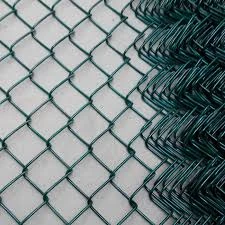Soft Annealed Iron Wire Properties, Uses, and Advantages
Soft annealed iron wire is a remarkable material known for its excellent ductility and malleability, making it a staple in various industrial and construction applications. This type of wire undergoes a specific heat treatment process known as annealing, which enhances its mechanical properties and workability. In this article, we will explore the characteristics, manufacturing process, and diverse uses of soft annealed iron wire.
Properties of Soft Annealed Iron Wire
The primary characteristic of soft annealed iron wire is its softness, resulting from the annealing process. Annealing involves heating the wire to a specific temperature, followed by a controlled cooling process. This treatment alters the microstructure of the iron, reducing internal stresses and restoring ductility. As a result, the wire becomes easy to work with and can be easily shaped, bent, or twisted without breakage.
Soft annealed iron wire also exhibits good electrical conductivity, which makes it suitable for various electrical applications. Its resistance to corrosion, though not as high as other materials like stainless steel, can be improved through surface coatings or treatments. Additionally, it possesses a good balance of strength and flexibility, making it ideal for applications that require both support and adaptability.
Manufacturing Process
The production of soft annealed iron wire begins with high-quality iron or low-carbon steel. The raw material is drawn through a series of dies to achieve the desired diameter. This drawing process hardens the wire, so it is subsequently subjected to annealing. The drawn wire is uniformly heated in a controlled environment, usually in a furnace, to ensure even heating. The temperature is kept below the iron's melting point for a specific duration, during which the wire's structure is modified to promote softness.
After the annealing process, the wire is cooled gradually, allowing the atomic structure to stabilize. The cooled wire is then cleaned and often spooled for easy handling and transportation. Throughout the manufacturing process, various quality checks are performed to ensure the wire meets industry standards for tensile strength, flexibility, and diameter consistency.
Applications of Soft Annealed Iron Wire
soft annealed iron wire

Soft annealed iron wire finds extensive use across a broad spectrum of industries. One of its most common applications is in construction, where it is used for tying rebar in concrete structures. Its malleability allows it to be easily twisted around rebars, ensuring stability and integrity in buildings.
In the manufacturing sector, this type of wire is often used in the production of meshwork, such as fencing and nets. These wire meshes provide an economical solution for enclosing areas while allowing visibility. Additionally, soft annealed iron wire is utilized in the crafting of various products, including jewelry, decorative items, and artisanal works where flexibility and formability are crucial.
Moreover, in the electrical domain, soft annealed iron wire serves as a component in the production of electromagnetic coils and components, benefitting from its high conductivity. It is also used in the automotive industry for the production of springs and various connectors due to its ability to withstand deformation under load.
Advantages of Soft Annealed Iron Wire
One of the significant advantages of soft annealed iron wire is its cost-effectiveness. Compared to other materials like stainless steel, it is typically more affordable while still providing adequate performance for many applications. Its ease of fabrication and versatility make it an attractive choice for both DIY projects and large-scale industrial purposes.
Additionally, the softness and strength balance of the wire mean that it can absorb energy and resist fracture, making it reliable for various structural applications. Its adaptability further enhances its appeal, as it can be easily manipulated into different shapes and forms depending on the project's requirements.
Conclusion
Soft annealed iron wire is an essential material in modern manufacturing and construction processes. Its unique properties, coupled with its versatility and cost-effectiveness, ensure its continued use across various industries. Whether in building infrastructure or crafting fine goods, soft annealed iron wire stands out as a material that unites practicality with performance.
















